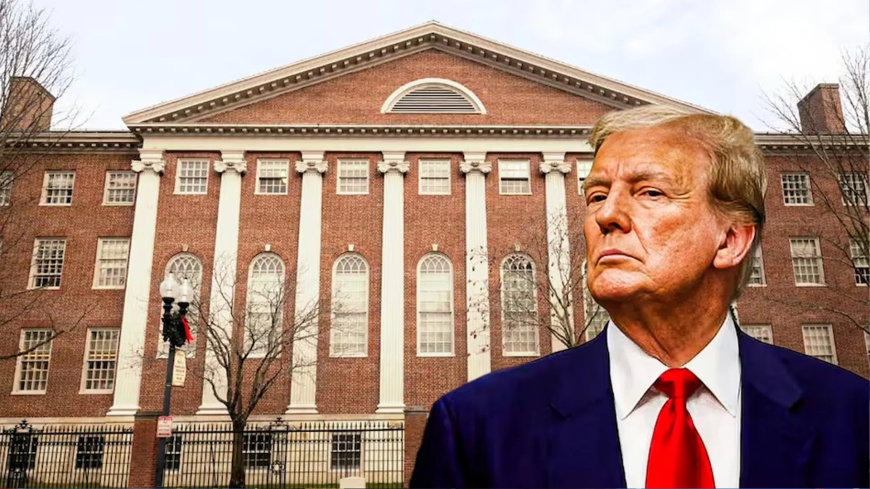Harvard University News – May 23, 2025: A Tumultuous Day in Academia

Harvard University is at the center of a significant national debate today, as the Trump administration escalates its confrontation with the institution over issues of governance, campus safety, and academic autonomy. The latest development involves a federal directive that halts Harvard's ability to enroll international students, including those currently enrolled, marking a dramatic shift in U.S. higher education policy.
Federal Action Against Harvard: A Detailed Overview
On May 22, 2025, the Trump administration revoked Harvard University's certification under the Student and Exchange Visitor Program (SEVP), effectively barring the university from enrolling international students. This decision affects approximately 6,800 international students at Harvard, many of whom are near graduation. Homeland Security Secretary Kristi Noem accused Harvard of fostering violence on its campus and collaborating with the Chinese Communist Party, citing concerns over campus safety and the university's diversity, equity, and inclusion (DEI) policies. She emphasized that enrolling international students is a privilege and warned other universities to align with government expectations .
In response, Harvard denounced the revocation as unlawful and reiterated its commitment to international students. Former Harvard President Lawrence Summers condemned the move as "tyrannical," urging the university to actively resist the policy, which he believes undermines academic freedom and global engagement .
Key Points of the Federal Action
| Aspect | Details |
|---|---|
| Affected Students | Approximately 6,800 international students at Harvard |
| Allegations | Fostering violence, antisemitism, and collaboration with the Chinese Communist Party |
| Government's Stance | International student enrollment is a privilege; universities must align with federal expectations |
| Harvard's Response | Denounced the action as unlawful; reaffirmed commitment to international students |
| Criticism from Experts | Former President Lawrence Summers labeled the move as "tyrannical" and harmful to academic freedom |
Financial Implications and Broader Impact
The administration's action is part of a broader effort to scrutinize and potentially cut federal funding to universities that do not comply with its directives. Harvard has already lost about $3 billion in contracts and grants due to alleged administrative failings related to campus antisemitism. International students, who often pay full tuition, contribute a crucial revenue stream that helps subsidize financial aid for domestic students. This policy shift not only affects Harvard but also sends a broader warning to other institutions like Columbia University, where a significant percentage of students are from abroad .
Financial Impact Overview
| University | Percentage of International Students | Estimated Financial Loss Due to Policy |
|---|---|---|
| Harvard University | 27% | $3 billion |
| Columbia University | 39% | Not specified |
Harvard's Commitment to Reform and Academic Freedom
Amidst these challenges, Harvard remains steadfast in its commitment to reform and academic freedom. The university has pledged $100 million to research and atone for its ties with slavery, acknowledging its historical role in perpetuating racial inequality. Additionally, Harvard has implemented measures to address campus antisemitism and anti-Arab discrimination, including modifications to admissions procedures and the introduction of mandatory antisemitism training for faculty .
President Alan Garber, who succeeded Claudine Gay in December 2024, has been at the forefront of these initiatives. Under his leadership, Harvard has established task forces to examine and address issues of antisemitism and Islamophobia on campus, demonstrating a proactive approach to fostering a more inclusive and respectful academic environment .
Harvard's Reform Initiatives
-
Financial Commitment: Pledged $100 million to research and atone for ties with slavery.
-
Curriculum Changes: Introduced new application questions to assess candidates' ability to engage with diverse viewpoints.
-
Faculty Training: Implemented mandatory antisemitism training for faculty.
-
Task Forces: Established panels to examine and address antisemitism and Islamophobia on campus.
Conclusion
The events of May 23, 2025, mark a pivotal moment in the ongoing debate over the role of federal oversight in higher education. Harvard University's response to these challenges will likely set a precedent for other institutions navigating the complex interplay between federal policies and academic autonomy. As the situation develops, it will be crucial to monitor how these dynamics unfold and what implications they hold for the future of higher education in the United States.





























